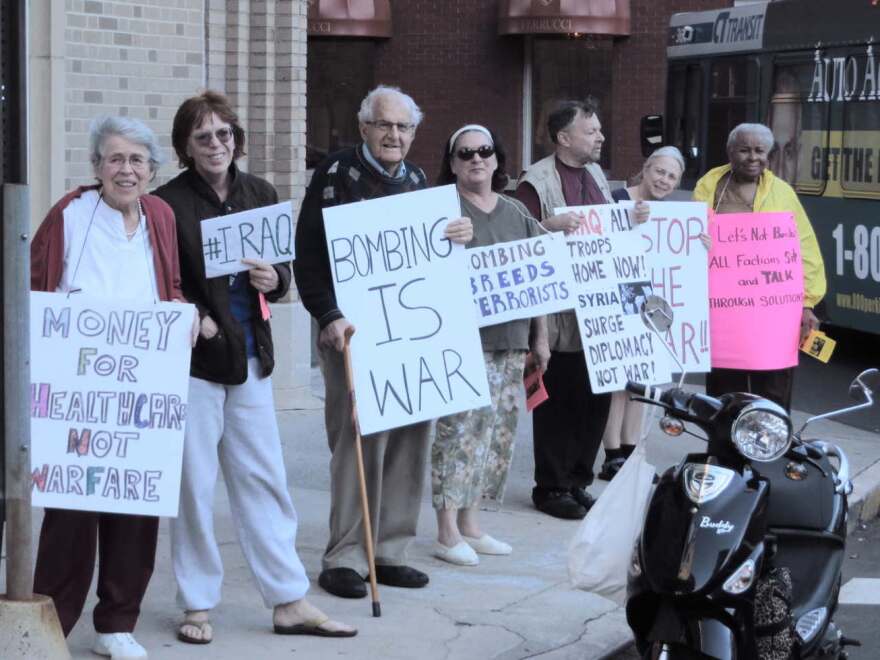Al Marder of New Haven Connecticut has been a community activist, advocating for justice, equality, and world peace for six decades. At age 93, he’s still active. He’s president of the Amistad Committee, Chairman of the Connecticut Freedom Trail, and President of the Peace Council. He’s a World War II veteran and a graduate of the University of Connecticut. Al Marder is also the last survivor of a group of Connecticut Communist Party leaders prosecuted in New Haven in 1954. He spoke with WSHU's Tom Kuser about his life and work.
INTERVIEW EXCERPTS:
62 years ago, the FBI showed up at your home in New Haven. At this time, Wisconsin Senator Joe McCarthy was heading up the US Senate Permanent Committee on Investigations, and he was attempting to investigate the army for Communist infiltration. And this concept of the “Red Scare” took root all over the country. Why did the FBI come looking for you?
It was part of the roundup of Communists nationally. It so happens that the national leadership of the Communist party were arrested earlier and imprisoned and then they proceeded statewide to round up leaders of the Communist Party?
And on what grounds were they arresting you?
(MARDER) They were arresting all Communists under the Smith Act.
(KUSER) And this was a federal law.
(MARDER) Yes, this was a federal which talked about the conspiracy, notice conspiracy, to overthrow the U.S. government. Not the act. That, of course, was declared unconstitutional later but that was the grounds that they arrested us.
Were you surprised?
That’s a good question. The truth of the matter is, my study of history influenced me, so I was not surprised.
What drew you Communism in the first place?
I was a student in high school in New Haven, James Hillhouse High School. It was the Depression. And I observed the Sheriff evicting families for non payment of rent. And I also saw a group take the furniture and put it back in. And I asked, “Who are they?” they said, “Well they’re the Communists.” So I became more and more interested and what was driving these people to violate the so called law. You don’t pay your rent, you’re evicted. And that was the period where unions were organizing. So I volunteered to distribute flyers into shops in Bridgeport, in New Haven, wherever they needed. I would wake up very early in the morning. They would tap on my window. My father had a car and I knew where he kept the key. I would dress, sneak out. We’d push the car down Davenport Avenue, so my father wouldn’t wake up and hear the motor. We went to the shops, distributed the flyers, came back, went back into bed, dressed and my mother would wake me up for school. So very early on I was moved in this struggle for workers and for the poor.
How do you think Communism is viewed today in the U.S.?
Well the McCarthy period and the arrests did great damage to that movement. I find it extremely interesting that you have a candidate for president who calls himself a Democratic Socialist and I’m sure this is the first time in 70 years that anyone has heard the world Socialist. The McCarthy era did horrible damage. Just remember, people were arrested, careers were destroyed, the Hollywood 10, the Rosenbergs, the whole atmosphere, people frightened to even have books in their homes. People who would walk across the street for fear of saying hello to me. That atmosphere in the American scene was a tragedy and the American people don’t know that. What happens when the state uses all its power to end discussion, debate and ideas. People are hurting in my country and they don’t have answers. And so the dangers of a neo-fascist and these others that are with him are creating a further crisis in our country changing the atmosphere making it difficult to talk about what’s bothering us.

